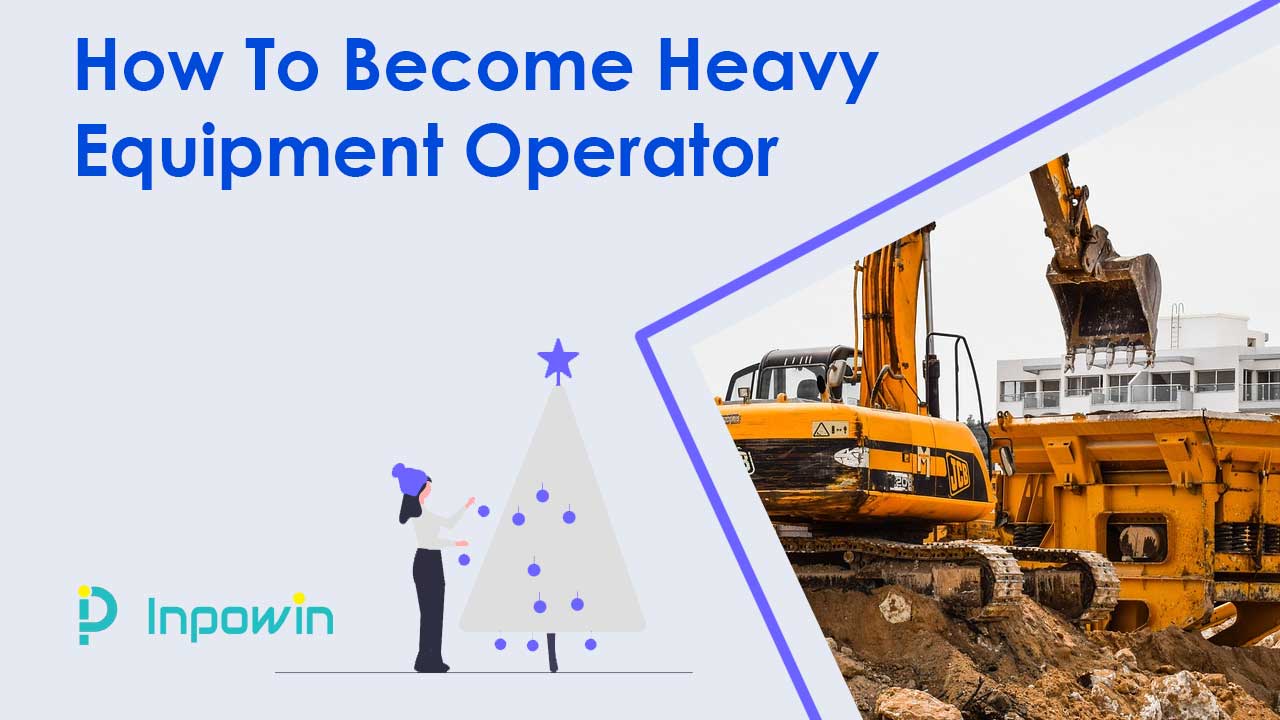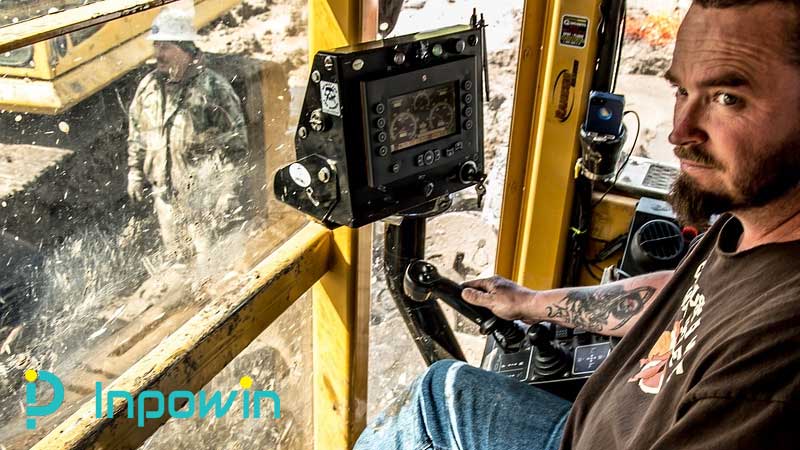Certainly, being a heavy-duty operator is a challenging job. In addition to responsibilities, this job would require operators to know everything about heavy equipment and the parts, not much more than just driving.
Even so, it turned out that there was still an operator who did not have a correct basic knowledge of the maintenance and repair of heavy equipment.
Of course, an operator must know everything about heavy equipment so as not to cause problems, especially as working with heavy equipment with more advanced technology, it could be that little knowledge could result in an unwanted event during the work process.
More specifically listen to the next how to become heavy equipment operator.

Qualification if You Want to Be a Heavy Tool Operator
All heavy-equipment operations require special skills. Heavy equipment requires handlers and detailed treatments, so it is not unusual for people to operate them.
Thus, an operator must meet certain qualifications in order to ensure the performance of heavy equipment. As for, in addition to being physically and mentally strong, an operator has to qualify as:
1. Licensed K3 (safety and Occupational Health)
First of all, an operator should have a k3 license. This license is a sign of authority that everyone in the industry should have.
This license indicates an operator’s authority to operate weights of his type and qualifications.
An operator who has a k3 license means being able to maintain and maintain heavy machinery in order to minimize the potential for work accidents.
Related: Heavy Equipment Operator Course that You Must Learn
2. Have a Log Book
A book log or a workbook is an operator’s activity record during heavy equipment operation.
From this note, both the operator and the relevant officer can identify the correct handling of the heavy equipment.
3. It Has a Sio (operator’s License) Official Heavy Gear
Sio is like a driver’s license to a motor vehicle, suggesting that his handler has heavy equipment operational permits.
As for you, you’ll have to meet some requirements to have sio, which will be outlined in the next point.
Sio is a document in the form of a certificate containing the identity of the operator and the type of heavy equipment it operates.
Then, the time of the letter was 5 years with an extension through the labor service office.
Related: Heavy Equipment in Construction
The Terms of Being a Heavy Tool Operator
The conditions of obtaining a permit as a heavy tool operator vary according to the type of tool, but in general are as follows:
Minimum Education
A heavy-duty operator has taken at least the intermediate education of junior high and high school equality, adapted by function. Details are as follows:
- Minimum high-school education equals operator
- Class I and ii lifting gear
- Class I forklift
- Railroad-carrier
- Minimum junior/equal education for the operator
- Class iii lift kit
- Gondola, Lier, takal and stake machine
- Class I forklift
- Pita transport.
How to Be a Good Heavy-Equipment Operator

So how do you expect to become a good heavy-duty operator? Do old experiences and flying hours refer to such a profession?
Instead of being confused, please look at some of the ways to become the heavy machinery operators that are good below.
1. Undergoing Rigorous Training and Knowledge
Well, this one must be very important to do in order to be a good heavy-duty operator.
By taking part in a wide range of training and various learning exercises from special agencies, you will be able to learn directly and practice everything immediately about the heavy machinery.
Usually, the training would vary from one to a half month to one and a half months, some of them up to one year long, and the training would take place as intensive asan alias.
When someone has made it through this training it’s usually the agencies that conduct the training will give you a certificate, as evidence that you’ve been able to be a heavy equipment operator.
A few other tips ensure that you select a training institution with high credibility and good credibility that is intended to give your recruiting company a sense of security.
What are the purposes of this training? This is more or less what you will learn if you take weight tools training.
- Capable of using the tools necessary to the job
- Aware of the importance of keeping security at work.
- Capable of heavy service and maintenance under the proper conditions
- Has knowledge of the heavy equipment, the primary components, the base, and how to use it.
- Recognizing system systems of heavy equipment
- Security and work symbols
- Literature service
- Basic knowledge of heavy equipment
- Engine maintenance
2. Always Keep a Good Fit
It is well known that field conditions, whether construction projects, mines or areas that require heavy equipment, are usually very hard and hot.
Here’s how important an operator must be in good physical condition.
Therefore, to protect a healthy body, an operator also needs to know health and safety regulations in his work, minimize unwanted incidents.
3. Mastered the Terrain and The Work Environment
To be a good heavy-duty operator is not enough to be relying solely on skill.
Not only that, a heavy-equipment operator is also required to be able to understand and control the environment wherever they work, asa heavy-equipment operator would be working in terrain that would surely be very difficult.
Therefore, understanding and mastery of the workplace are essential to both self-preservation and the saving of lives.
For example, when working ina field that is hot and highlighted by sunlight and surrounded by a heavy instrument, a hat or a shoe is necessary.
The operator also needs to know the proper evacuation routes and self-placement to avoid the impact or fall of any heavy equipment.
It is important to check the heavy equipment first before using it. So, when there is a malfunction, an operator will be able to detect it easily and can avoid accidents that result in death.
4. Prep for Heavy Equipment
Determine the equipment in a proper condition using a prepared examination form. If there is any damage, report immediately and repair.
Use the necessary ( apd ). Arrange comfort and safety procedures in a heavy gear cabin before operating such as seating arrangements and rear-view mirrors.
Make sure the other workers who are unrelated are not in the workplace.
5. When Operating Heavy Equipment
Always check the environment around the workplace, especially if there are other workers or other heavy equipment.
Make sure that communication tools are readily available such as radio communication or hand signals from spotter.
Related: Heavy Equipment Movers
6. After Handling the Heavy Machinery
When you are done with the heavy equipment, park the heavy equipment in a flat and safe place.
After shutting down the engine, clean out the operator’s cabin while watching the indicators.
Check all safety systems and make sure the equipment is secure. Lastly, leave the contact key to the supervisor at the end of the operator’s call.
7. In an Emergency
In the event of an emergency such as a work accident, a fire, a natural disaster, or animal disturbance, contact the field supervisor as soon as possible no more than 24 hours.
Conclusion
A heavy-duty operator is a very challenging job. In addition to responsibilities, this job would require operators to know everything about heavy equipment and the parts, not much more than just driving.
Because it was important to know how to become heavy equipment operators like the explanation on top earlier.





